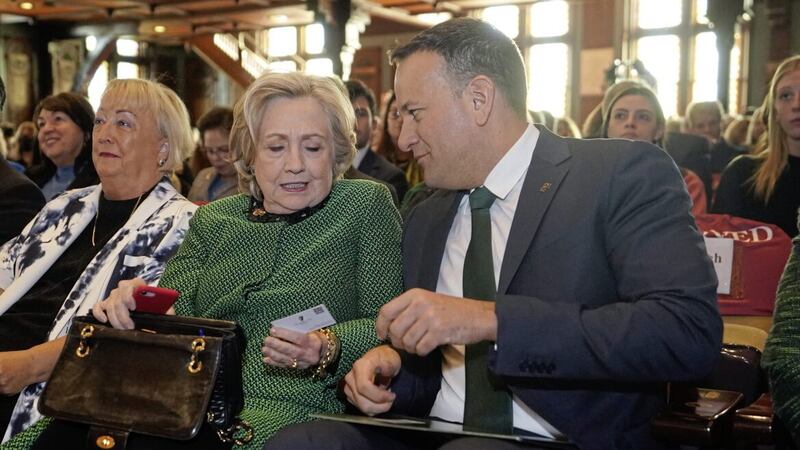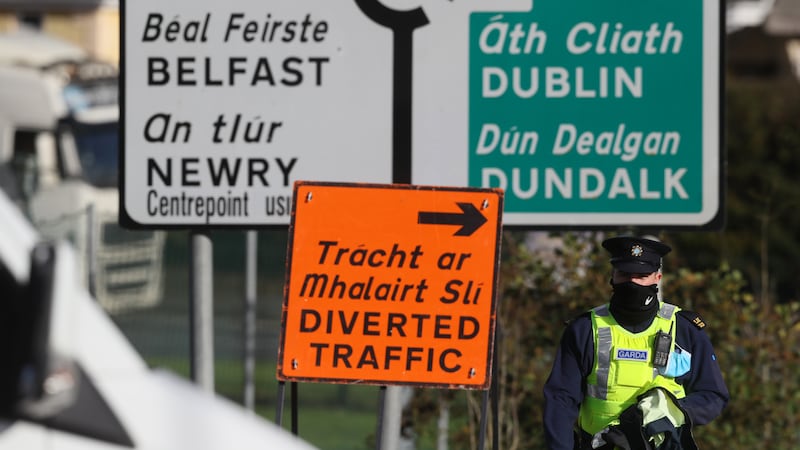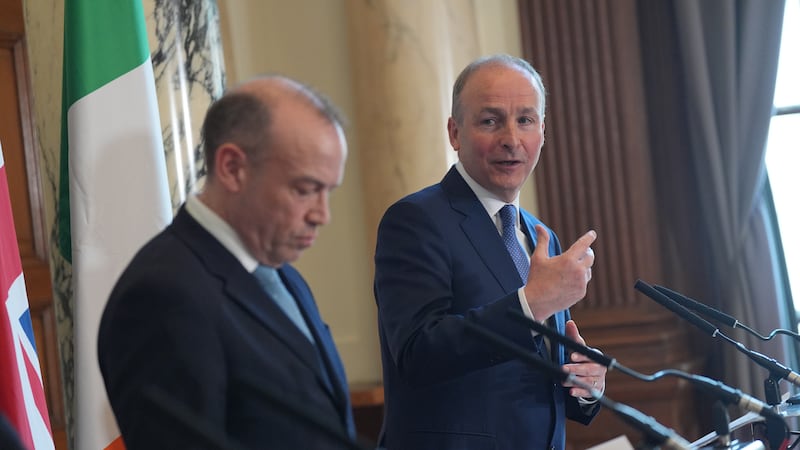It’s a giddy green bath, American St Patrick’s Day; what’s a mis-speak among friends?
Taoiseach Leo Varadkar distinguished himself with that crack about interns in the Clinton Oval Office, apparently leaving the Irish officials present wordless.
Diplomats have fine-tuned taoisigh for decades to keep America engaged, to push Britain to concentrate in the cause of peace, otherwise known as political stability.
Some in official Ireland forget now that the Department of Foreign Affairs found John Hume unmatchable, if sometimes maddening, in the other part of the strategy – cultivating Irish-American movers and shakers to counter IRA fund-raising.
The Washington bonds Hume made helped enlist corporate Irish-America including Bill Flynn. Who helped coax President Bill Clinton into that visa for Gerry Adams so Adams could soften the anti-ceasefire anger among Provo supporters in America.
How Hume’s efforts helped establish a ‘peace process’ that benefited Sinn Féin still galls many, of course. None of them had an alternative to offer. Unionists mustered no match for his American impact, when eventually some made the effort.
In the fractious years that led into the Troubles, Stormont's unionist government had to be jolted out of complacence about running Northern Ireland as it chose, without the least British interest. Then Harold Wilson’s Labour government began to demand that Terence O’Neill move faster with bigger reforms.
O’Neill was simultaneously harried inside his cabinet by Bill Craig among others and unnerved by the street agitation fomented by Ian Paisley, inventor of his own party and church. Civil rights demands met Paisleyite demagoguery, unionist party immovability.
When Bill Clinton became involved in the making of the ‘peace process’, there was British resentment and genuine unionist shock that official America was implicitly criticising British policy in Northern Ireland, part of the UK. How dare outsiders lobby.
But there was a neat if contradictory historical echo. An NI cabinet meeting minute in May 1969 noted Paisley lobbying on behalf of his friend and fellow agitator Major Ronald Bunting, serving a jail sentence for disorderly behaviour as Paisley had. They both feared a jail record would cost them election to local government, and American visas; Paisley loved visiting Biblical fundamentalist friends in the southern states.
O’Neill’s cabinet held the line on disqualification but provided a letter to help with visa applications. (That cabinet spent considerable time labouring to defuse Paisley.)
Whose fault is it that unionists lack major American sympathy? The Ulster-American diaspora scattered from the outset, its most distinct legacy perhaps a strand in the music of the Appalachians.
Perhaps upstaged now by that inexplicable windfall from a lonely old man in England, Sinn Féin’s ability to raise money in the US will continue to make other Irish politicians resentful, and prickly Protestant unionism will always resent ‘outside’ intervention. But then dominant sixties unionism also rejected demands for faster reform from Downing Street.
Irish America was never the simple cash cow for the Fourth Green Field of unionist nightmares. Clinton’s first major contribution may have been the visa for Adams; later came those middle-of-the-night 1998 phone calls to bolster David Trimble in negotiations. Both Clintons worked hard to show even-handedness. Clinton-appointed chair of the pre-Good Friday marathon George Mitchell was no wearer of the Green.
The Irish Times' knowledgeable political editor Pat Leahy brought home from St Patrick’s Day the clear message that US businesses were ‘willing to back peace with investment in Northern Ireland’. If ‘political stability returns’ – defined as Stormont institutions being revived and functioning ‘effectively and sensibly’– there would be ‘a decade of investment... tangible economic benefits for Northern Ireland and its people. But to unlock this, the DUP needs to accept the Windsor Framework.’
Leahy asked if anyone opposed to it ‘could come up with a better deal?' Wrong people to ask, Pat.
In 1998 today’s DUP leader walked out on Trimble. Phone calls from Joe Biden won’t sway him. Maybe hard-headedness inside his camp can spur him. Eventually.








